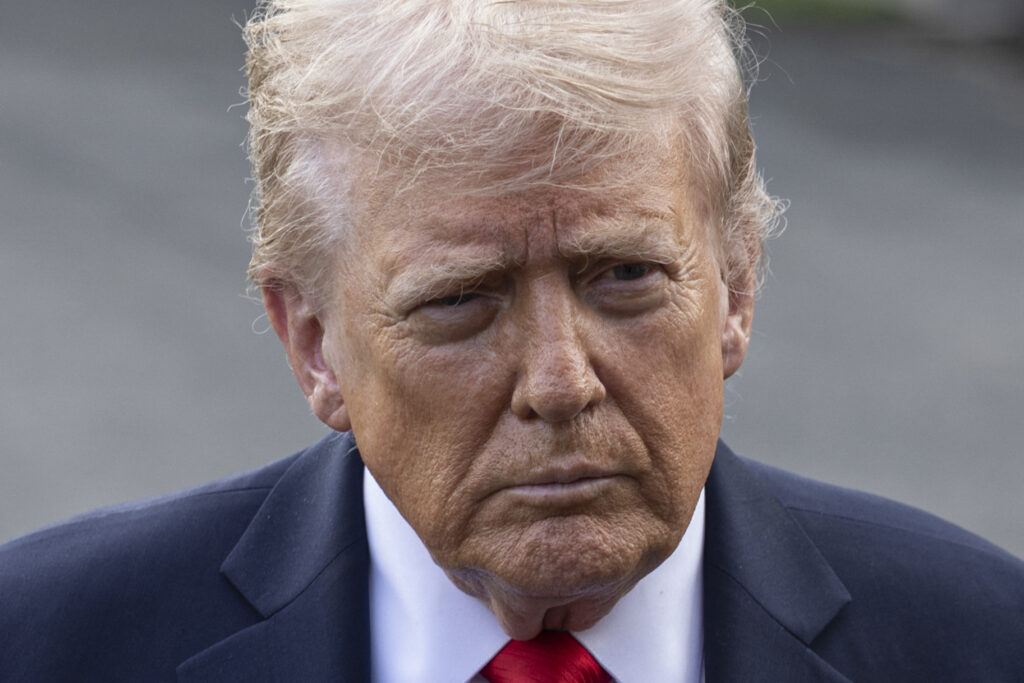‘I Couldn’t Care Less’: Trump’s Downplaying of Right-Wing Violence Continues Long Pattern

With the country reeling from yet another high-profile act of political violence, President Donald Trump Friday excused extremism originating from the right while heaping blame on the left.
During a Fox News interview Friday morning, Trump was asked what his administration was doing to curb extremism emanating from the political left and right in light of conservative activist Charlie Kirk’s murder Wednesday.
“I’ll tell you something that’s going to get me in trouble, but I couldn’t care less,” the president responded. “The radicals on the right oftentimes are radical because they don’t want to see crime. They don’t want to see crime.”
“They’re saying, ‘We don’t want these people coming here. And we don’t want you burning our shopping centers. We don’t want you shooting our people in the middle of the street,’” Trump added, appearing to nod to instances of right-wing vigilantism in recent years.
“The radicals on the left are the problem. They’re vicious, and they’re horrible,” Trump said. “And they’re politically savvy, although they want men in women’s sports. They want transgender for every one. They want open borders.”
Reacting to Trump’s comments Friday, Luke Baumgartner, a research fellow at George Washington University’s Program on Extremism, said Trump’s comments could embolden violent far-right radicals.
“It seems like a blessing from the highest levels of government and the highest positions of power for vigilantes or those who are extremely upset about what happened to Charlie Kirk to go out and take some sort of vengeance or retribution on those that they see as responsible or implicit in what happened to him,” Baumgartner said.
Political violence is on the rise in the U.S., affecting prominent figures on the left and right.
But since the start of his second term, Trump has taken steps to reward right-wing violence while also obstructing the country’s ability to track and defend against acts of extremism.
On his first day in office, Trump granted clemency to every person charged or convicted for their actions during the violent Jan. 6, 2021, attack on the U.S. Capitol. The Trump administration has hired some of those pardoned for key positions across the federal government, including the Department of Justice.
In addition to cutting funding for a national database tracking domestic terrorism, hate crimes and school shootings, the Trump administration has also shifted resources from an FBI office that monitors threats posed by white supremacists and militia groups.
In response to Kirk’s murder, Trump has largely blamed the left.
Even though the authorities hadn’t yet apprehended a suspect, Trump in an address from the Oval Office Thursday blamed “the radical left” — a term he routinely uses to refer to his political rivals — for Kirk’s killing and “terrorism.”
“For years those on the radical left have compared wonderful Americans like Charlie to Nazis and the world’s worst mass murderers and criminals,” Trump said. “This kind of rhetoric is directly responsible for the terrorism that we’re seeing in our country.”
Trump vowed to investigate unnamed “organizations” that support political violence, echoing calls from his top allies for a broad crackdown on left-leaning political organizations in response to Kirk’s murder.
During the address, Trump implicitly downplayed violence against Democrats by only listing instances of political violence against Republicans or perpetrated by those he views as on the left.
The president did not highlight the June killing of Melissa Hortman, the former speaker of the Minnesota House of Representatives, nor the attempted killing of Pennsylvania Gov. Josh Shapiro in April.
Trump’s comments on Fox News Friday were reminiscent of his previous remarks about right-wing extremism.
Trump in a presidential debate would not condemn white supremacists and militia groups for their part in stoking unrest in 2020, saying he saw riots that summer as solely a “left-wing” problem.
In that same debate, Trump infamously told the Proud Boys, a far-right extremist group, to “stand back and stand by.”
And in response to clashes between white nationalists and demonstrations in Charlottesville, Virginia in 2017, Trump said there were “very fine people on both sides.”